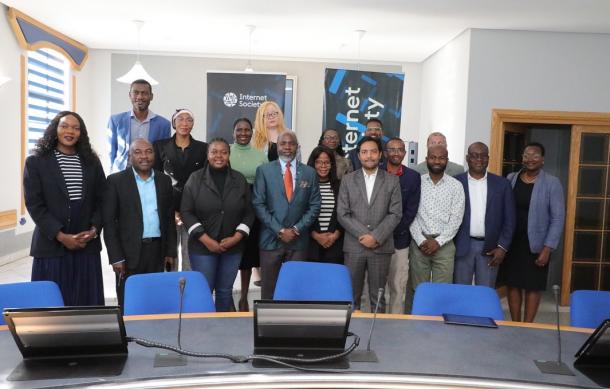
A consultative meeting, aimed at developing policy recommendations and practical initiatives to enhance the national internet ecosystem as advanced information and communication technologies evolve, was held in Windhoek today.
The Namibia National Internet Universality Indicators meeting was held by the Ministry of Information and Communication Technology in collaboration with the Internet Society of Namibia and UNESCO. The Executive Director in the Ministry of Information and Communication Technology, Dr. Audrin Mathe, says the national assessment will provide Namibia with an opportunity to voluntarily assess itself in terms of Internet policies and development.
"This assessment will provide us with evidence of where we are precisely in our policy and development of the internet, particularly considering the human rights aspects, openness, and accessibility. It further evaluates the roles and governance of multi-stakeholders, the intersection of gender, people with disabilities, youth, sustainable development, and other intersectional issues that ought to be paid attention to in the policies and practice of technology."
The lead researcher of the Internet Society Namibia Chapter, Nashilongo Gervasius, says the assessment is framed around a number of values. One of them is that the internet must be universal, which highlights the UN's agenda on digital inclusivity.
"The assessment we are doing as a country is not for ranking; once we go through the indicators themselves, you will find out there is no specific ranking to indicate how the country is doing per specific indicator but also provide measurements, legal policies, and a regulatory framework. Its unique strength is measuring human rights, taking a multi-stakeholder approach to the policy and development of the internet, and focusing on a clear focus on digital inclusion."
Gervasius revealed that Namibia has so far done assessments covering all 303 indicators across all the categories of ROAMX in 31 different themes. ROAMX categories are human rights, openness, inclusiveness, multi-stakeholder, and cost-cutting.
"So we have 21 contextual indicators measuring economic and human development, among others; there are indexes; and then we have human rights, which has 55 indicators; open access, which has 57 indicators; inclusive access, which has 70 indicators; multi-stakeholders, which has 21 indicators; and cost cutting, which has 81 indicators. At the end, we will have a report."
The Internet Universality Indicators framework was developed through global, open, inclusive, and multi-stakeholder processes over three years. They serve as a tool to assess a country's internet landscape and provide recommendations for addressing challenges and seizing opportunities.





